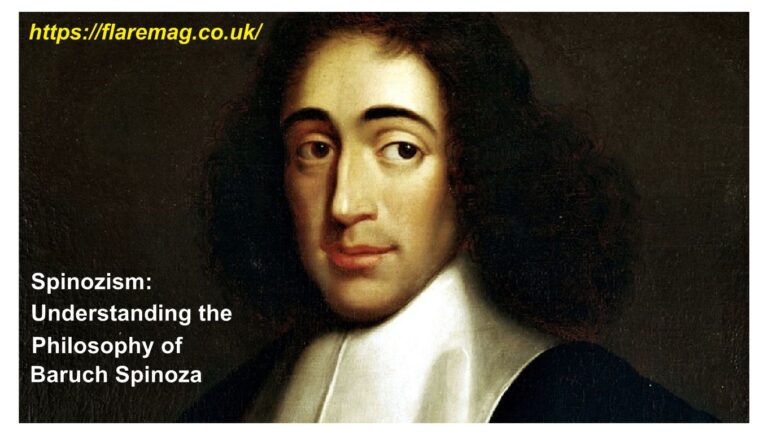Spinoza’s philosophy revolves across the standards of monism, determinism, and the critique of conventional religion. This article explores the important thing elements of Spinozism, its historic context, and its impact on next philosophical thought.
Monism: The Unity of Substance
At the heart of Spinozism is the doctrine of monism, the concept that there may be simplest one substance within the universe. Spinoza identified this substance with God or Nature (Deus sive Natura). According to Spinoza, the whole lot that exists is part of this unmarried, infinite substance. This radical departure from the dualistic worldview of Descartes, which posited a separation among thoughts and frame, led Spinoza to a completely unique know-how of lifestyles. In Spinoza’s view, God isn’t always a transcendent, private deity however an immanent, impersonal force that constitutes the essence of the entirety.
Determinism and Free Will
Spinoza monism leads immediately to his views on determinism. He argued that everything inside the universe follows always from the nature of God or Nature. This method that each one events, which includes human movements, are determined by way of the immutable laws of nature. For Spinoza, unfastened will is an illusion. Humans accept as true with they’re loose because they’re aware in their desires and moves but unaware of the causes that decide them. This deterministic perspective demanding situations conventional notions of ethical obligation and has profound implications for ethics and psychology.
Ethics: The Pursuit of Blessedness
Spinoza’s moral philosophy is targeted on the idea of reaching blessedness (beatitudo) or happiness via know-how and aligning oneself with the rational order of Nature. In his magnum opus, “Ethics,” Spinoza outlines a route to this aim thru the cultivation of purpose and the overcoming of passions. He distinguishes among passive feelings, which rise up from outside causes, and active feelings, which stem from an understanding of necessity. By learning the real nature of fact, people can obtain a state of tranquility and freedom from the bondage of irrational passions.
Critique of Traditional Religion
One of the maximum debatable factors of Spinoza’s philosophy is his critique of conventional religion. In his “Theological-Political Treatise,” Spinoza argued that religious authorities have historically used superstition and dogma to control people and hold electricity. He advocated for a rational approach to scripture, emphasizing the moral teachings of the Bible over its supernatural claims. Spinoza’s call for the separation of philosophy and theology become a precursor to modern secularism and the Enlightenment critique of religion.
Influence on Enlightenment Thought
Spinoza’s thoughts had a massive impact at the Enlightenment, the highbrow motion that emphasized cause, technology, and character liberty. Thinkers together with Voltaire, Diderot, and Rousseau were influenced by way of Spinoza’s critique of faith and his emphasis on rationality. Spinoza’s philosophy additionally laid the foundation for later tendencies in metaphysics, ethics, and political concept. His insistence at the solidarity of mind and frame anticipated later philosophical actions, which includes German Idealism and existentialism.
Legacy of Spinozism
Spinoza’s legacy is still felt in present day philosophy, technological know-how, and politics. His thoughts about the interconnectedness of all things resonate with present day ecological notion, which emphasizes the interdependence of people and nature. Spinoza’s determinism has stimulated discussions in neuroscience and psychology about the character of attention and unfastened will. Moreover, his call for a rational technique to ethics and politics remains applicable in debates about secularism, human rights, and the function of religion in public lifestyles.
Conclusion
By advocating for a existence guided by reason and expertise, Spinoza offers a path to non-public and societal transformation. His philosophy invitations us to reconsider our location in the universe and to try for a deeper, greater rational engagement with the arena.
